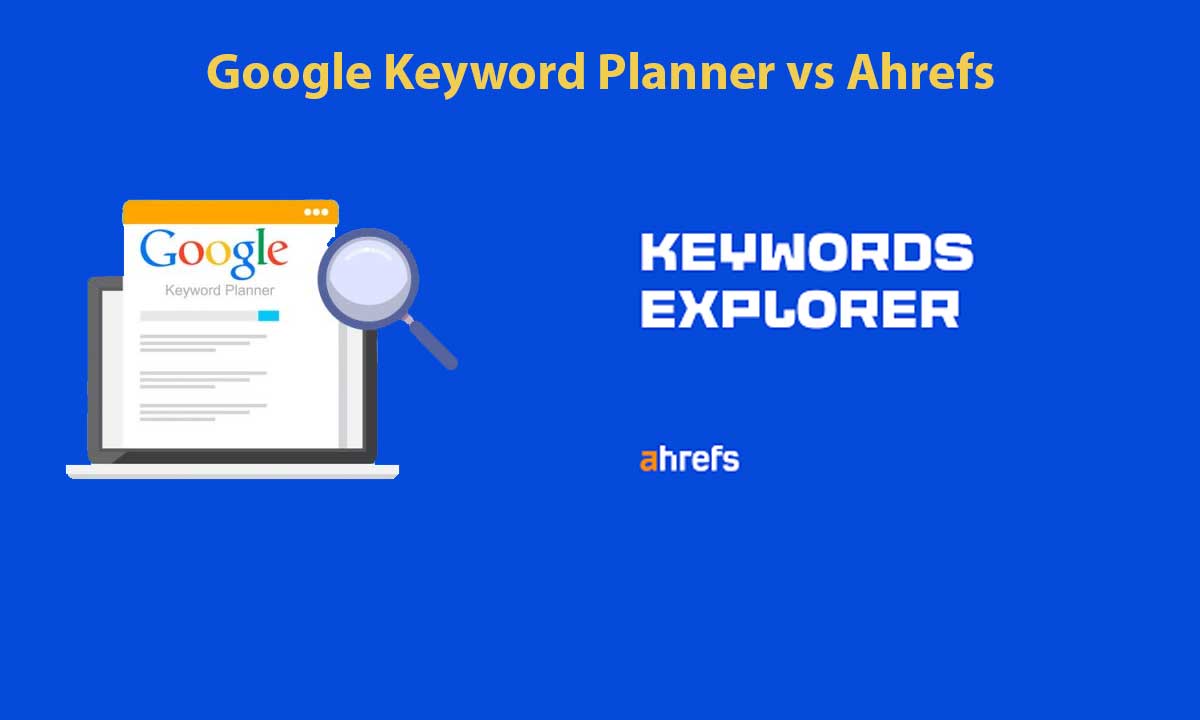Google Keyword Planner vs Ahrefs: Which SEO Tool Should You Use?
Choosing the right SEO tool is a critical step in building a winning digital marketing strategy. Among the most popular options in 2025, Google Keyword Planner and Ahrefs stand out for their utility and reliability. But while both tools are excellent in their own right, they serve slightly different purposes and are built for distinct types of users.
In this guide, we’ll break down the key differences between Google Keyword Planner and Ahrefs, compare their features, pricing, data accuracy, pros and cons, and help you decide which one aligns better with your SEO goals.
What Are Google Keyword Planner and Ahrefs?
Google Keyword Planner: A PPC-Centric Research Tool
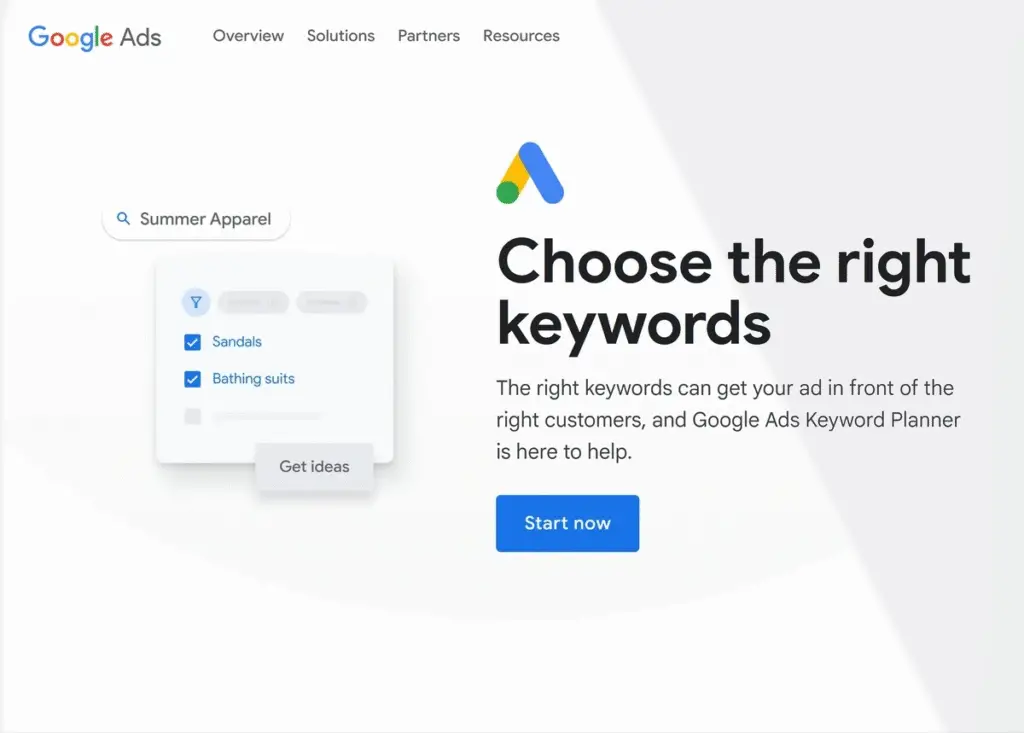
Google Keyword Planner is a free keyword research tool offered within the Google Ads platform. While it’s technically designed for pay-per-click (PPC) advertisers, many SEO professionals use it to gather ideas for content targeting, search volume estimates, and related keyword terms.
Ahrefs: A Full-Fledged SEO Suite
Ahrefs, on the other hand, is a premium SEO platform offering a broad suite of tools, including keyword research, backlink analysis, rank tracking, content explorer, site audits, and competitive analysis. It’s a favorite among serious digital marketers, content strategists, and SEO professionals.
Google Keyword Planner vs Ahrefs: Head-to-Head Comparison
| Feature | Google Keyword Planner | Ahrefs |
|---|---|---|
| Pricing | Free | Paid (limited free plan available) |
| Data Source | Google Ads | Ahrefs crawlers + third-party APIs |
| Keyword Metrics | Search volume, competition, CPC | Volume, keyword difficulty, traffic potential, SERP overview |
| SEO Tools | Basic keyword insights | Keyword Explorer, Rank Tracker, Site Audit, Backlink Checker |
| PPC Tools | Yes, primary function | Minimal support |
| Ease of Use | Beginner-friendly | Intermediate to advanced users |
| Accuracy for Organic SEO | Moderate | High |
| Use Case | Small businesses, advertisers, beginners | SEO professionals, agencies, bloggers |
1. Data Sources and Accuracy
One of the biggest differences between the two tools is how they source and interpret data.
Google Keyword Planner
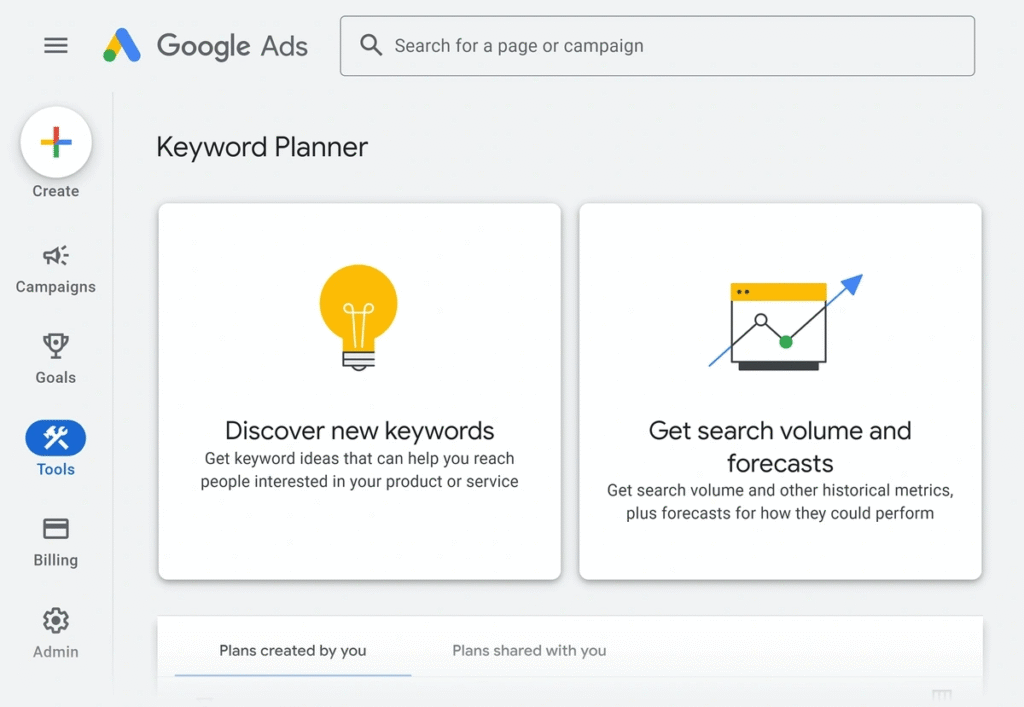
Google Keyword Planner relies directly on Google Ads data. It provides a blend of historical performance, search volume ranges, and competition levels for keywords in paid search campaigns. However, it doesn’t differentiate between paid and organic metrics — making it less useful for SEO-specific campaigns.
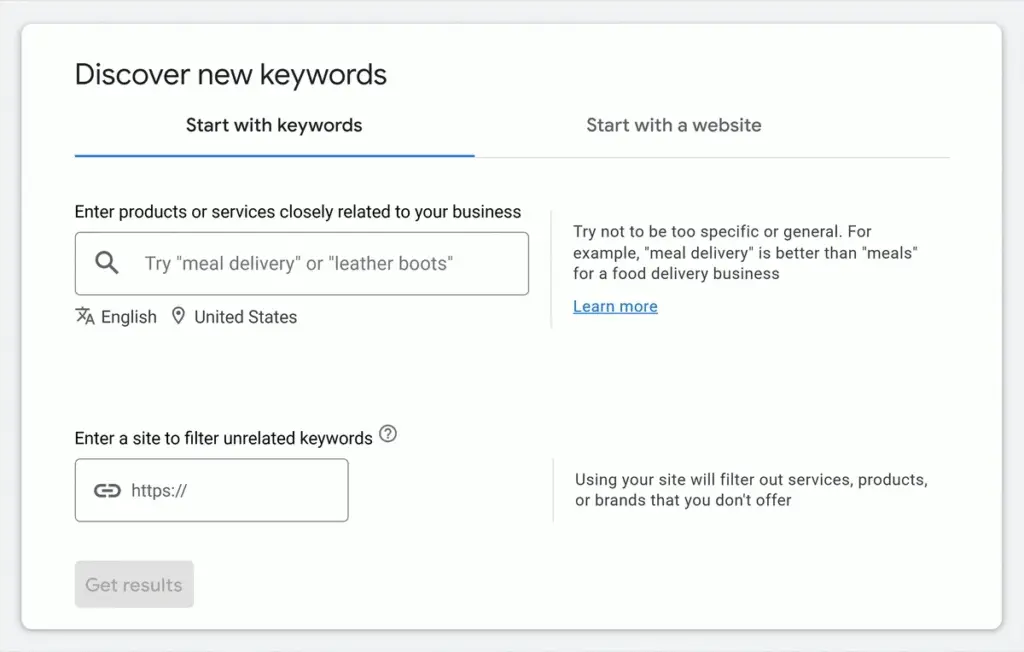
Limitations:
- Volume ranges (e.g., 1K–10K) instead of exact numbers
- PPC-focused competition scores
- No backlink or SERP-level insights
Ahrefs
Ahrefs sources data from its own proprietary crawler, which is among the most active in the industry, as well as external sources like Google Trends and clickstream data. This gives it the ability to:
- Estimate organic search volume more precisely
- Offer detailed keyword difficulty scores
- Show SERP features and traffic estimates for top-ranking pages
Advantage: You’re getting SEO-focused metrics, which makes Ahrefs significantly more accurate for organic marketing efforts.
2. Keyword Research Capabilities
Google Keyword Planner
You can search for keywords in two ways:
- By entering seed keywords: Get a list of related terms with CPC and search volume.
- By entering a URL: Discover keywords Google associates with a particular website or page.
This can be helpful for:
- Finding keyword inspiration
- Estimating PPC costs
- Building basic content outlines
However, there are no metrics for organic ranking difficulty or detailed SERP analysis. Additionally, the keyword suggestions tend to be broad or commercial in nature.
Ahrefs
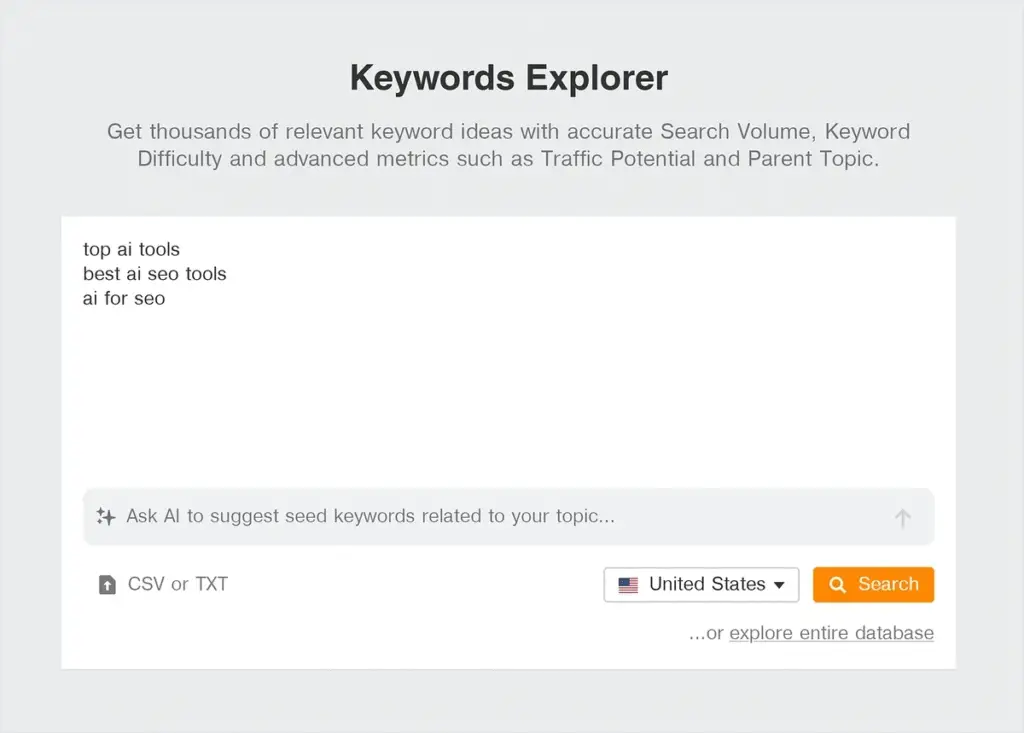
Ahrefs’ Keyword Explorer offers advanced keyword research features:
- Keyword difficulty (on a 0–100 scale)
- Click-through rate (CTR) estimations
- Global vs local volume
- Parent topics and traffic potential
- Search intent classification (informational, navigational, commercial, transactional)
It also supports research for multiple search engines, including Google, YouTube, Amazon, Bing, and more.
If your goal is to rank content organically and compete strategically in search, Ahrefs is the superior tool.
3. Rank Tracking and Monitoring
Google Keyword Planner does not offer any built-in rank tracking. You’ll need other tools (like Google Search Console or Ahrefs) to monitor how your keywords perform over time.
Ahrefs, on the other hand, includes a powerful Rank Tracker:
- Tracks keywords by location and device
- Compares your site’s position to competitors
- Measures average position, traffic, visibility score, and SERP features
This is critical if you want to track SEO ROI and adjust your strategies based on performance data.
4. Backlink and Site Audit Features
Google Keyword Planner
Does not offer any link-related features. You cannot audit backlinks or monitor site health.
Ahrefs
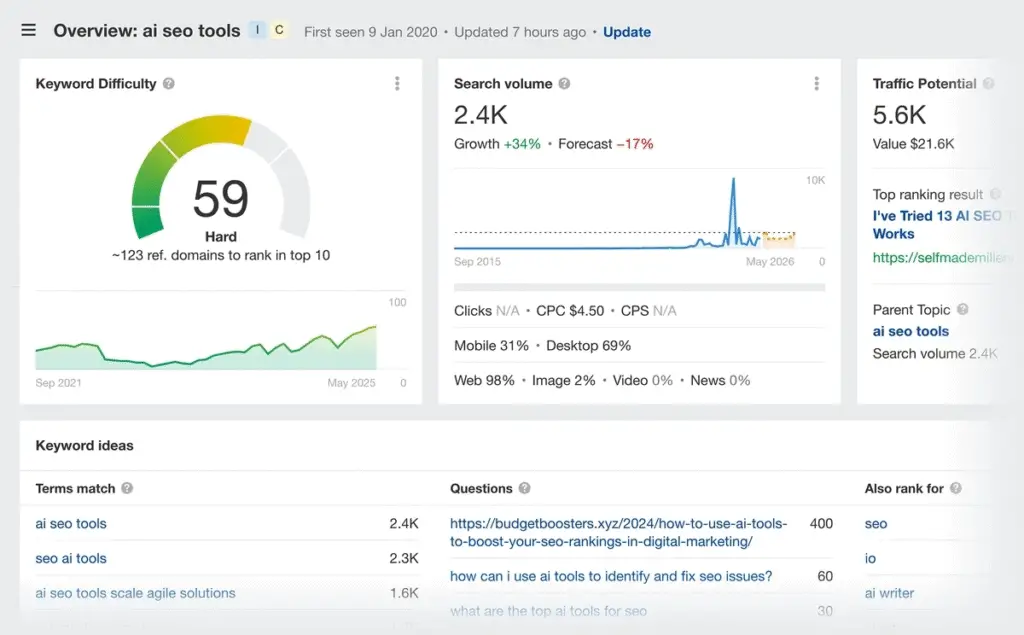
Ahrefs is known for its industry-leading Backlink Explorer:
- Tracks referring domains and anchor text
- Identifies lost/gained backlinks
- Shows link velocity trends and toxic link signals
It also includes Site Audit tools that identify:
- Broken links
- Slow-loading pages
- Duplicate content
- Missing meta tags
This makes it ideal for managing technical SEO and off-page strategies.
5. Competitive Analysis
Google Keyword Planner provides little to no data on competitor domains unless you’re running ads and analyzing performance via Google Ads.
Ahrefs excels in competitive analysis:
- Site Explorer shows organic traffic, keywords, top content, and backlink profile of any domain
- Content Gap Tool uncovers keywords your competitors rank for that you don’t
- Top Pages reveals which content is generating the most traffic
This functionality helps you reverse engineer your competitors’ strategies and outperform them with better content.
6. Pricing Comparison
Google Keyword Planner Pricing
- Free with a Google Ads account
- No monthly fees
- Limitations in data granularity and SEO features
Ahrefs Pricing (2025)
| Plan | Monthly Price (Annual Billing) |
|---|---|
| Free | $0 (very limited features) |
| Lite | $108/month |
| Standard | $199/month |
| Advanced | $399/month |
| Enterprise | Custom |
While Ahrefs is significantly more expensive, the value it provides in terms of actionable SEO data is unmatched for professionals.
7. Use Cases: When to Choose Which Tool
Use Google Keyword Planner If You:
- Are new to digital marketing
- Need keyword ideas for short-term PPC campaigns
- Want basic search volume and trend data
- Are working with a zero-dollar SEO budget
Use Ahrefs If You:
- Want to grow long-term organic traffic
- Need in-depth keyword and competitive insights
- Manage client SEO accounts or run an agency
- Need technical audits and backlink tracking
8. Real-World Keyword Example: “Swimming Pool Sales”
Let’s analyze how both tools report the keyword “swimming pool sales.”
- Google Keyword Planner: High PPC competition, with bid ranges from $3.00–$5.00. Search volume shows 10K–100K.
- Ahrefs: Organic keyword difficulty score is only 12 (easy). Estimated traffic potential is high with low competition in organic SERPs.
Insight: If you used Google Keyword Planner alone, you might skip this keyword due to high competition. But Ahrefs reveals that it’s ripe for an SEO strategy — an example of why relying solely on Google data can lead to missed opportunities.
Pros and Cons
Google Keyword Planner
Pros:
- Free
- Easy to use
- Direct Google Ads integration
- Good for basic keyword discovery
Cons:
- Lacks organic SEO metrics
- No rank tracking or backlink tools
- Data limited to Google only
- Generalized search volume ranges
Ahrefs
Pros:
- Full-featured SEO suite
- Accurate keyword and traffic data
- SERP and backlink analysis
- Keyword tracking and technical audits
Cons:
- High cost
- Steeper learning curve
- Free plan has very limited functionality
FAQs
Is Google Keyword Planner Accurate?
It is accurate for paid search data, but not reliable for organic SEO strategies. For instance, a keyword may appear highly competitive due to advertiser demand but may be easy to rank for organically.
How Accurate is Ahrefs?
Ahrefs is considered one of the most accurate SEO tools for organic search data. A study by Ahrefs itself showed their volume estimates were reasonably accurate about 60% of the time, significantly better than Google’s tendency to overestimate.
Are There Any Good Alternatives?
Yes, other popular SEO tools include:
- Semrush (excellent for keyword research, site audits, and competitor analysis)
- Ubersuggest (budget-friendly)
- Moz Pro
- SE Ranking
Some platforms like Exploding Topics focus on trend forecasting rather than traditional keyword research.
Final Verdict: Google Keyword Planner vs Ahrefs
If you’re just getting started with keyword research and don’t have a budget, Google Keyword Planner is a useful entry point. It can help you build initial content ideas and plan small ad campaigns.
But if your goal is long-term organic growth, Ahrefs is the clear winner. Its advanced features, accurate data, and powerful SEO insights make it a must-have tool for serious marketers.
SEO Tip: Consider using both tools together. Use Google Keyword Planner to gather initial keyword ideas, then plug those into Ahrefs to evaluate organic potential and build a more informed SEO strategy.
Read Also: Screaming Frog vs. Semrush

